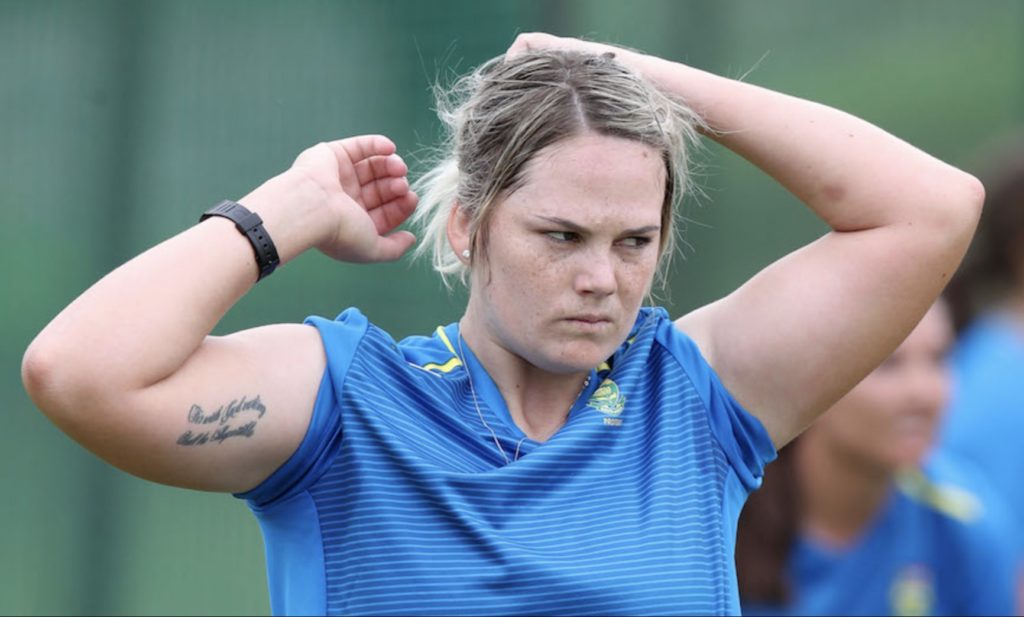CSA chief medical officer Shuaib Manjra has defended the use of the 2km time trial as a fitness test for national and domestic cricketers.
This follows Dané van Niekerk’s claim that her omission from the Proteas Women’s squad for this year’s T20 World Cup in South Africa was “personal”.
The 29-year-old was ruled out of selection contention after failing a 2km time trial by 18 seconds, and retired from international cricket shortly after the tournament.
MORE: CSA didn’t value me – Van Niekerk
Last year, fast bowler Sisanda Magala was selected for a Proteas ODI series against Bangladesh, but excluded at the last minute after failing to achieve CSA’s fitness targets. He was also prevented from playing for the Lions in the CSA T20 Challenge at the start of the 2022-23 season.
Magala worked on his fitness, and was this year recalled to the Proteas ODI squad for the series against England after impressing for the Sunrisers Eastern Cape in the SA20.
The 32-year-old was also rewarded for his efforts with an IPL contract after being picked up by the Chennai Super Kings as an injury replacement.
READ: It was a crazy, emotional rollercoaster ride – Magala
In an interview with IOL Sport, Manjra said the 2km time trial wasn’t intended to punish players.
“This is meant as a measure to show professionalism in South African cricket, to increase SA cricket’s competitiveness.
“The other point I want to make is that we don’t suddenly drop this on players. We don’t suddenly say, ‘Guys, we’re dropping it from nine minutes to 8:30, now you’ve got to meet the standards’.
“Players have adequate time and have multiple opportunities to pass the test. It’s not like if you fail the test once, then you’re out; we’ll give you multiple opportunities.”
Manjra said people were quick to criticise CSA for dropping players for fitness reasons, without fully understanding the situation.
“Any player who has been dropped, there’s a long history before that; it’s a trend.
“People like to crucify Cricket South Africa, and CSA is very dignified in that we don’t give it a full story because there’s a long story behind it.
“Also remember, this is part of players’ performance contracts,” he added. “It is not something that they don’t know, it’s something they are signing onto.
“If you need assistance, we give you assistance. You need to go to a boot camp, you need a fitness trainer, you need the help of a dietician or a nutritionist, or you need mental support, whatever it is, we give players all the support. It’s not like we’re throwing players into the deep end and say swim or sink.
“In a sense, we are creating a support structure to ensure the players can meet the standards.”
Manjra also explained why CSA replaced the yo-yo test – which involves running between markers placed 20m apart, at increasing speeds, until exhaustion – with the 2km time trial.
“The yo-yo test was very specific in terms of what you want to do. Many of the players were complaining about the yo-yo test, it can be quite demanding.
“In addition to player concerns about the yo-yo test, although I still think it is a pretty good test, also international trends have moved to the 2km time trial rather than the yo-yo test as a measure of speed and endurance.
“We’ve followed that trend. I think it’s more practical and players can train for it specifically to meet the 8:30 standard.”







